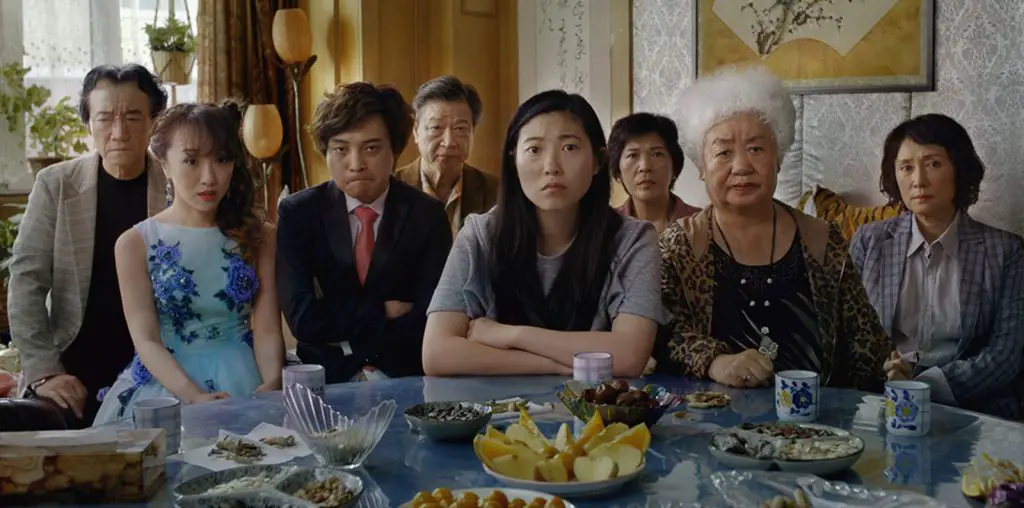
Nigel Bluck’s cinematography nicely distinguishes between the two timeframes. The past is drenched in rich colors, while the present is more desaturated. It helps that the actors who play Pin-Jui are separable by appearance and age.
The older Pin-Jui is domineering and jaded, convinced that Zhenzhen couldn’t have succeeded in America without him, and he doesn’t think he can talk to his daughter because she’s “stubborn.” Pin-Jui risked it all by coming to America, and he can’t let that risk be squandered, by himself or by his daughter. While I’m able to empathize with Angela’s desire to feel the love of her father, I also understand where Pin-Jui’s fervent demands of perfection stem from. He came to America and was forced to overcome cultural barriers, and he left behind his mother and his first love. He needs this risk to pay off; he needs those sacrifices to be of value.
Tigertail is a decade-spanning tale that seems to be slashed in half. A subplot involving Angela’s husband leaving her, and a scene in which Minghua tells Pin-Jui that she isn’t joining him in America are both instances where Alan Yang could’ve rendered the story more culturally and emotionally revealing. That being said, Yang’s perceptive script blends well with the understated execution.

“…Yang’s perceptive script blends well with the understated execution.”
As the role of Pin-Jui switches between Hong-Chi Lee and Tzi Ma, they take the character to great emotional heights. With a heartsick gaze and a steadily more flinty demeanor, Pin-Jui’s adjustment to American society is not conveyed verbally, but physically and facially. A mournful instrumental score commonly permeates the emotionally stifled scenes with an emphatic sense of longing, thus revealing the eternal echo of regret that every human being hears somewhere down the line.
In the end, Pin-Jui’s grandmother was wrong. Crying may not instantly change a dour situation, but keeping those tears and emotions only amplifies one’s internal distress and impacts their relationships with their loved ones.
Alan Yang’s Tigertail is a furtively potent tale of the Taiwanese immigrant’s experience. Treated with subtlety and realism, the cultural clashes and father-daughter dysfunction are not inflated dilemmas, but aren’t wholly explored either. The film’s not exactly missing its other half, but it is slightly undeveloped. That being said, Tigertail is a beautifully dignified and tactful immigration drama, helmed by purposefully guarded and delicate performances.
Tigertail is streaming now on Netflix.

"…perpetually jumps between past and present...Nigel Bluck's cinematography nicely distinguishes between the two timeframes."


